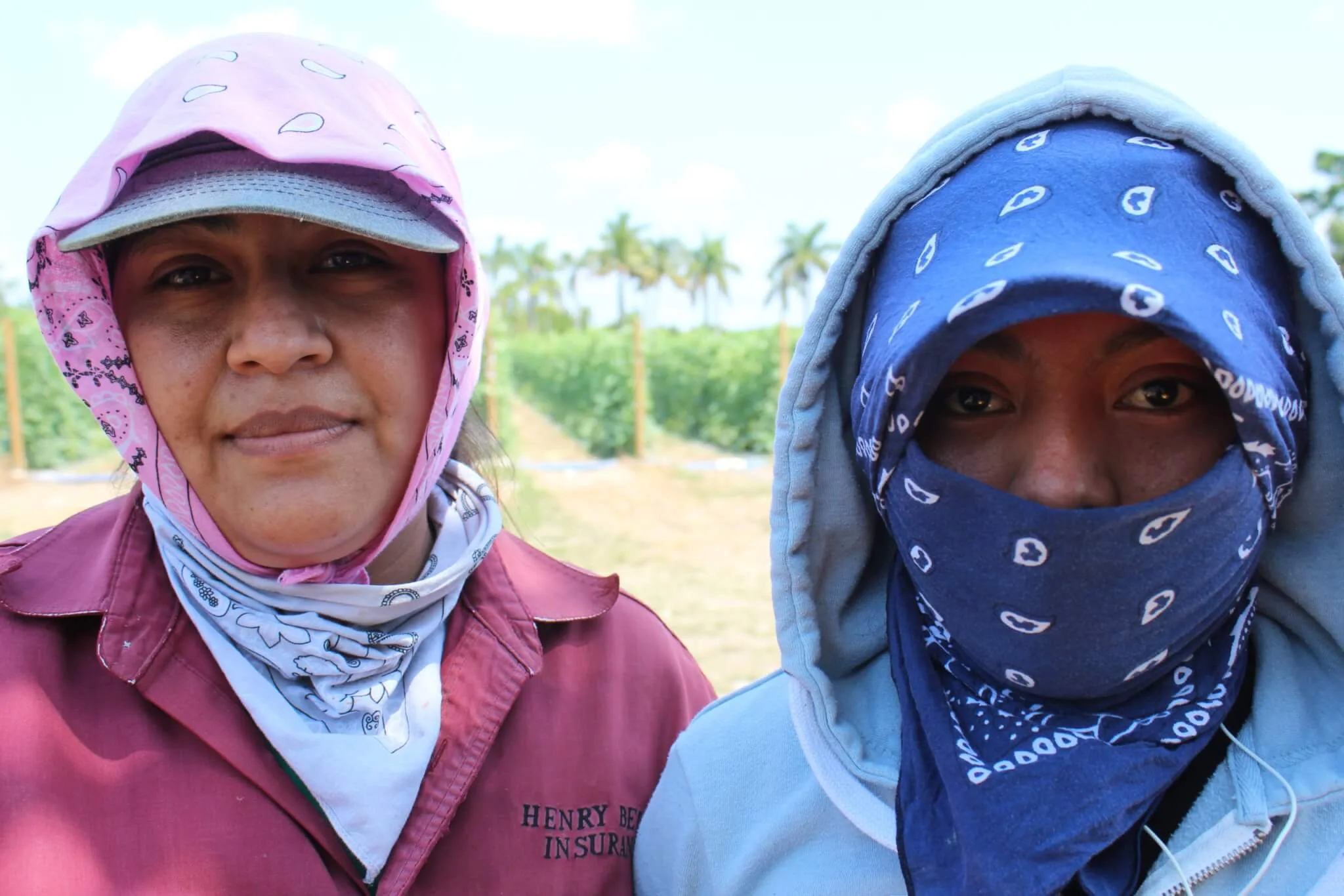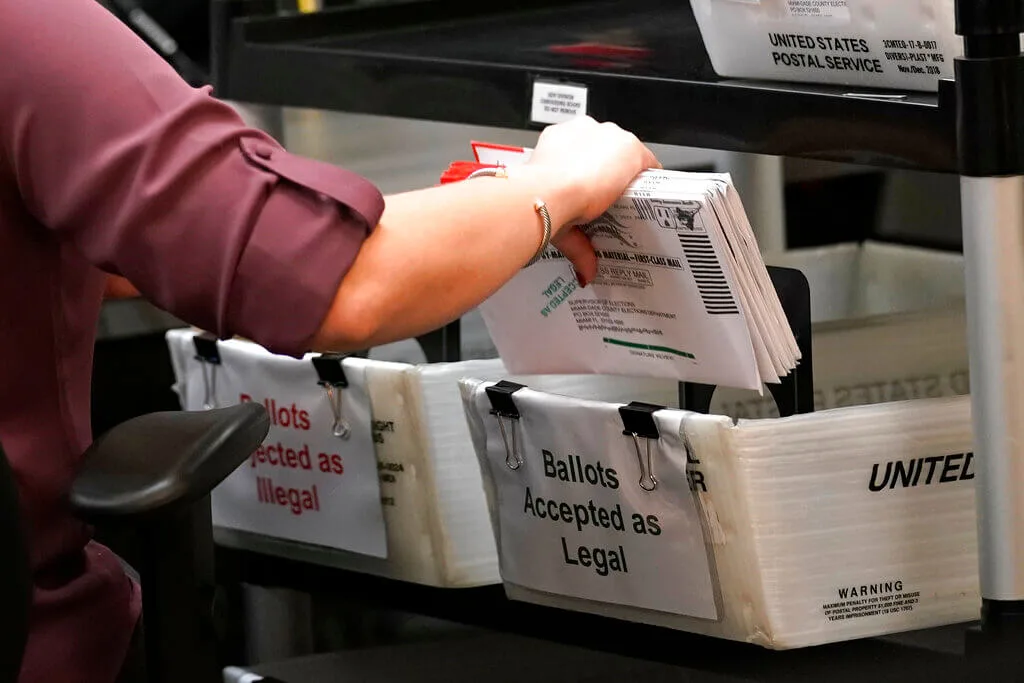
Image via Keyvan Antonio Heydari for The Americano
Farmers struggle to keep the food chain that feeds America going. The #2 industry in Florida is falling apart with no government support. We spent two days with 11 growers in what they call their “fields of dreams.” This is what we saw.
Photos by Keyvan Antonio Heydari. Text by Cristy Marrero.
Erwin Hernández Flores leases a plot in the South of Florida. He employs 11 farmers that work sunup sundown. To understand their struggle, we spent two days with these 11 dedicated farmers in Homestead, Florida. Here’s how a day in their lives looks like.
As an independent farmer and Deferred Action for Childhood Arrivals program (DACA) recipient Erwin knows he and his crew of 11 workers are invisible to most Americans. He is one of almost two million farmers in the country. As he points to the field behind him, he salvages green beans off the vines and reflects: “I don’t know if right now I’m a farmer or a beggar. I’ve got $30,000 — my life savings — invested and I have to pay workers, pesticide, and transport.” Yet as an immigrant businessman, he most likely doesn’t qualify for any of the aid packages coming from Washington.
The Coronavirus Stimulus Bill passed by Congress on March 30 is expected to relieve the struggle of farmers across the country. A portion of the $23.5 billion approved is supposed to include direct deposits to farmers and rancheros like Erwin. But the distribution of these funds is yet to be determined by the Department of Agriculture. But Erwin fears he won’t see any of that relief money anytime soon.
RELATED: Read the full story of Erwin and his farmworkers here.
Erwin is 29-years-old. He’s been working in the farming industry for ten years now. His dreams are that people value more the work of the people that feed America so he gets the financial support his 11-worker operation needs to survive this pandemic. “I would like the people in power to come here and walk with us. I would like our government representatives to come out here, and see what we do, even if just for an hour,” he says. “At noon, under the sun. To understand the suffering, the work we do.”

Two of Erwin’s female farmers, Vanessa and Marcela. Vanessa is a mother who believes working the fields during the pandemic is a blessing because — ironically — at least she can bring food to the table.

At the farm, Erwin and his workers grow four of the top 20 foods in the entire country: tomatoes, green and white beans, cabbage and papaya, among others. Social distancing while picking at a farm is simply not an option. Still, these female farmers cover their faces as much as they can.

Farmers have to be quick at picking the green beans from the vine before they rot.

Erwin and his 11 workers grow the top three fruits and vegetables that drive Florida’s agriculture economy — according to the USDA — in his leased plot in Homestead. And farming is the second largest industry in the state. Yet, they struggle to get on the radar. To be included in times of crisis like these.

The fear of the contagion of coronavirus has put extra pressure on the pickers. If they get sick, they can’t come back to work. As a small business operation, even Erwin — the owner — don’t have paid sick leave.

Erwin’s growers work hard every day to provide for their families that most have left behind in their country of origin, in most cases Guatemala and Mexico.

Half of Erwin’s workforce is female. They work hard for the money it isn’t coming as it used to before the pandemic.

Vanessa and Marcela are moms. They leave their families at the crack of dawn to drive miles to get to Erwin’s fields.
“I’m a little scared,” says Vanessa, from Tamaulipas, Mexico. “We’re working here so food can get to the store and the people. If they knew our situation they would help us. If I get sick I won’t be able to work.”

RELATED: Photo Essay: Faces Of Our Essential Workers
They take a few breaks during the day. When they finally have a chance for lunch they opt for a light one: a few slices of papaya that have been picked the day before. The heat is unbearable. The past two days being at almost 95 degrees all day.

Farming is not a 9-5 job. Shifts are long and require a lot of physical stamina. Any given day, the workers walk a few miles back and forth. During the pandemic, they have to rush even more so they can have their products out for sale on the kiosk early.

After a long day of picking, the farmers start packing as much as they can on the boxes that will be delivered to the few stores that are still buying.

It’s been a long morning under the unforgiving Florida sun. These workers go over their picks of the day before packing what will go the stores and head to the improvised kiosk Erwin has been forced to put up to try to sell the rest of his beans before they go bad. His wife is in charge of that kiosk. There, she waits hopefully, as drivers will pull over on their way home to buy some fruit and vegetables.

Yolanda Hernández, Erwin’s wife takes care of the improvised kiosk the couple decided to put up by the main road. Otherwise, a big portion of their picks of the day go to waste, now that restaurants and hotels are practically shutdown. She is a second generation Mexican and speaks fluent English.

Erwin picks a few more vegetables and heads to his truck. He then drives away with a trunk full of the food that feeds America, and the uncertainty of it will be consumed or go to waste.

Social distancing is nearly impossible for farmers. Especially, when it’s time to go home. They share a ride on a packed van covering their faces and hoping the novel virus considers then essential workers and leaves them alone.

After everyone’s gone, their fields of dreams gets watered for the next day.

“Here’s where I’m happy. This is my life. What I ask for is that we are valued a bit more. When I arrived at Homestead, my first boss was an American. One of those with a big compassionate heart. Even though he was born with money. That man helped us so much! His farm of 200 acres was producing a ton. But the price of tomatoes went down to $5 a box [when the economic downfall for farmers that started in 2017]. He went bankrupt. I just don’t want to have the same luck, Erwin says.”
Politics

Teamsters and UPS Reach Tentative Deal to Avoid Strike, 340,000 Workers to Get Raises
The tentative deal represents a huge win for full- and part-time UPS Teamster workers, who would get significant pay raises and better working...



One Republican Senator Is Blocking 265 Military Promotions, Leaving the Marines Without a Confirmed Leader
Sen. Tommy Tuberville's decision means these military officers are not getting the pay raises they’re owed, cannot move their families to wherever...
Local News



Teamsters and UPS Reach Tentative Deal to Avoid Strike, 340,000 Workers to Get Raises
The tentative deal represents a huge win for full- and part-time UPS Teamster workers, who would get significant pay raises and better working...



One Republican Senator Is Blocking 265 Military Promotions, Leaving the Marines Without a Confirmed Leader
Sen. Tommy Tuberville's decision means these military officers are not getting the pay raises they’re owed, cannot move their families to wherever...




